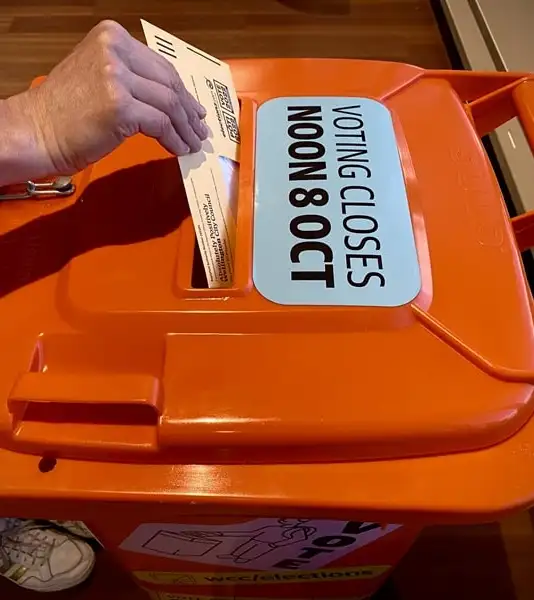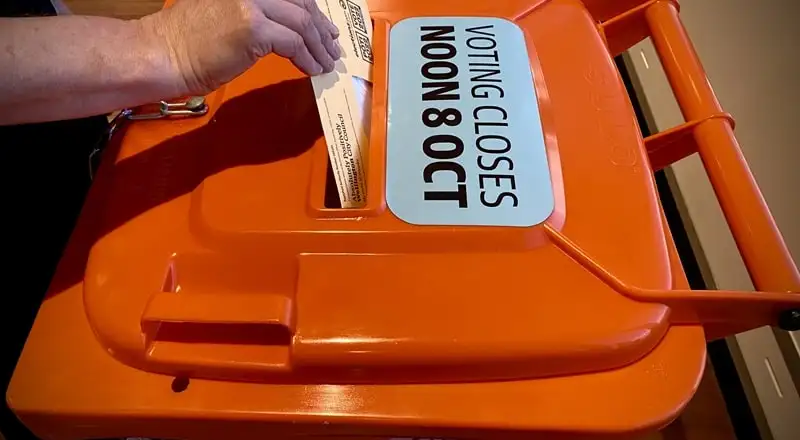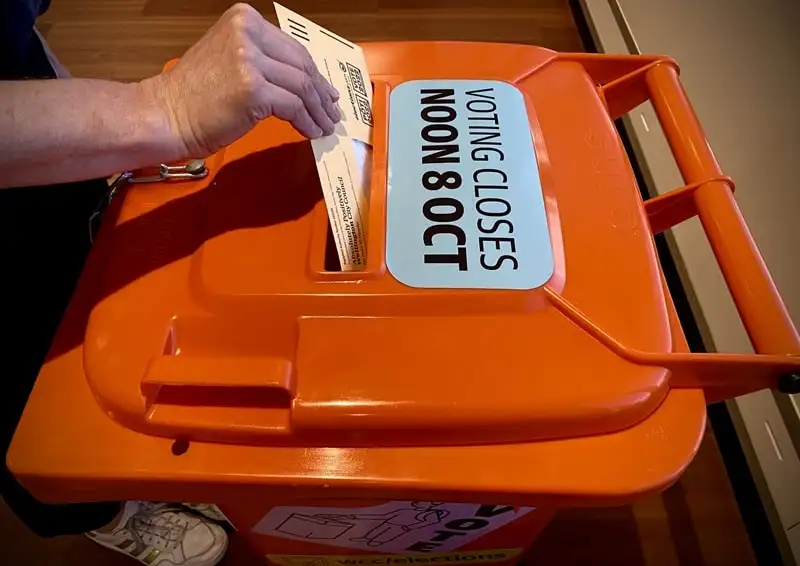Local electoral reform



Local government plays a key role in our democracy.
Local elections are vital to shaping the future of our communities across Aotearoa New Zealand. They give us the chance to choose the leaders who make important decisions about the services and infrastructure we rely on every day — like roads, parks, water, and community facilities. By participating in local elections, we ensure our councils reflect our needs and values, giving everyone a voice in decisions that impact our lives.
It's important that local elections are supported and recognised, so councils can properly represent the communities they serve.
Despite efforts to raise awareness and encourage more people from different backgrounds to stand for office and vote, turnout in the October 2022 local elections was only 40%. This continues a worrying trend of declining interest in local democracy across Aotearoa, which we need to reverse to ensure a strong, healthy democracy.
Electoral Reform Working Group
The National Council of LGNZ set up the Electoral Reform Working Group to lead efforts to strengthen local government’s democratic mandate, with a focus on increasing participation in local elections.
Members of the working group are:
- Mayor Hon Dr Nick Smith, Nelson City (Chair)
- Mayor Campbell Barry, Hutt City (Deputy Chair)
- Councillor Toni Boynton, Whakatāne District, Co-Chair Te Maruata
- Professor Andrew Geddis, University of Otago
- Mayor Susan O'Regan, Waipā District
- Mayor Rehette Stoltz, Gisborne District
The working group’s work focused on five key topics:
- How well the public understands local government and why it matters
- Understanding the candidates and their policies
- Voting methods
- How elections are run and promoted
- The possibility of moving to four-year terms (including how this would work)
Between 2024 and July 2025 the working group carried out widespread engagement with councils, MPs, key organisations and other interested groups and individuals. Its issues paper and draft position paper were released for public consultation, which informed its final position paper.
Position paper
The final position paper was launched at the SuperLocal Conference in July 2025.
Our work to date
The timeline below summarises activity to date.
April 2025
We submitted on the Term of Parliament (Enabling 4-year Term) Legislation Amendment Bill
Read our submission: Term of Parliament (Enabling 4-year Term) Legislation Amendment Bill
May 2024
We submitted on the Local Government (Electoral Legislation and Māori Wards and Māori Constituencies) Amendment Bill.
Read our submission: The Local Government (Electoral Legislation and Māori Wards and Māori Constituencies) Amendment Bill
October 2023
We submitted on the Electoral (Lowering Voting Age for Local Elections and Polls) Legislation Bill.
Read our submission: Electoral (Lowering Voting Age for Local Elections and Polls) Legislation Bill
July 2023
Our submission on the interim report of the Independent Electoral Review notes the importance of both general and local elections and calls for the review to note the need for its recommendations to be supported with similar changes for local electoral law.
Read our submission: Final-Submission-Interim-report-of-the-Independendent-Electoral-Review
February 2023
It's crucial that local elections are recognised and supported so that councils reflect and are relevant to the communities they serve. We submitted on the Inquiry into the 2022 Local Elections.
Read our submission: Inquiry into the 2022 Local Elections
February 2023
Local government faces a once-in-a-generation opportunity to reshape how our local communities are governed in the future. We submitted on the Future for Local Government panel’s draft report.
Read our submission: Future for Local Government panel’s draft report